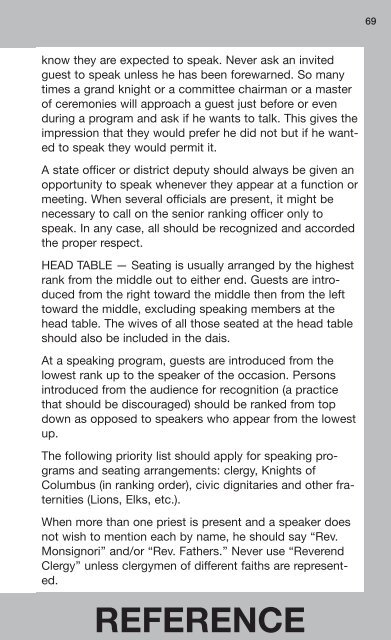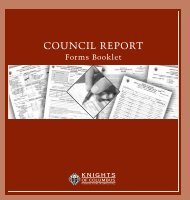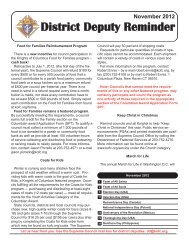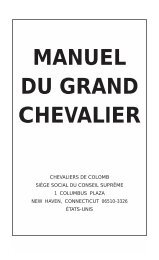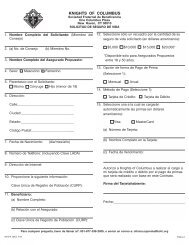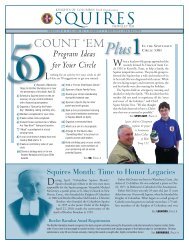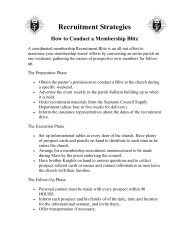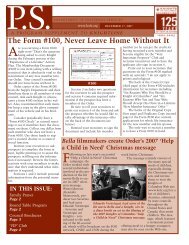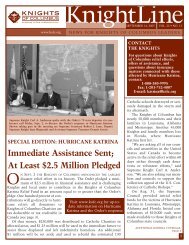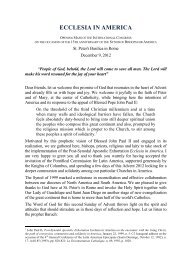Grand Knight's Handbook - Knights of Columbus, Supreme Council
Grand Knight's Handbook - Knights of Columbus, Supreme Council
Grand Knight's Handbook - Knights of Columbus, Supreme Council
You also want an ePaper? Increase the reach of your titles
YUMPU automatically turns print PDFs into web optimized ePapers that Google loves.
REFERENCE<br />
69<br />
know they are expected to speak. Never ask an invited<br />
guest to speak unless he has been forewarned. So many<br />
times a grand knight or a committee chairman or a master<br />
<strong>of</strong> ceremonies will approach a guest just before or even<br />
during a program and ask if he wants to talk. This gives the<br />
impression that they would prefer he did not but if he wanted<br />
to speak they would permit it.<br />
A state <strong>of</strong>ficer or district deputy should always be given an<br />
opportunity to speak whenever they appear at a function or<br />
meeting. When several <strong>of</strong>ficials are present, it might be<br />
necessary to call on the senior ranking <strong>of</strong>ficer only to<br />
speak. In any case, all should be recognized and accorded<br />
the proper respect.<br />
HEAD TABLE — Seating is usually arranged by the highest<br />
rank from the middle out to either end. Guests are introduced<br />
from the right toward the middle then from the left<br />
toward the middle, excluding speaking members at the<br />
head table. The wives <strong>of</strong> all those seated at the head table<br />
should also be included in the dais.<br />
At a speaking program, guests are introduced from the<br />
lowest rank up to the speaker <strong>of</strong> the occasion. Persons<br />
introduced from the audience for recognition (a practice<br />
that should be discouraged) should be ranked from top<br />
down as opposed to speakers who appear from the lowest<br />
up.<br />
The following priority list should apply for speaking programs<br />
and seating arrangements: clergy, <strong>Knights</strong> <strong>of</strong><br />
<strong>Columbus</strong> (in ranking order), civic dignitaries and other fraternities<br />
(Lions, Elks, etc.).<br />
When more than one priest is present and a speaker does<br />
not wish to mention each by name, he should say “Rev.<br />
Monsignori’’ and/or “Rev. Fathers.’’ Never use “Reverend<br />
Clergy’’ unless clergymen <strong>of</strong> different faiths are represented.


